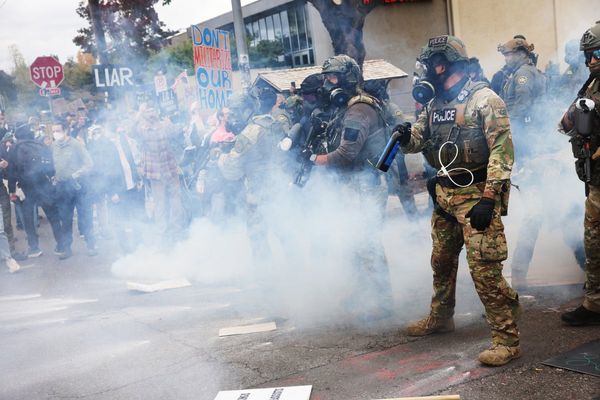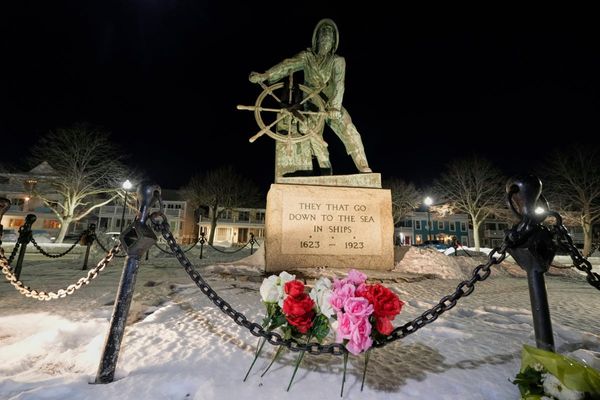"You have no moral right to die."
This stark command, uttered by Olha Kurtmalaieva to herself as she lay in intensive care, became her lifeline. Her body was shutting down after emergency chemotherapy, her cancer having progressed to an incurable Stage 4.
Doctors were unsure if she would survive the night, yet the thought of her husband, a Ukrainian marine held captive by Russian forces, spurred her on.
Alone in the Ukrainian capital, Kyiv, Ms Kurtmalaieva faced death with a singular, powerful motivation: "If I die now, who will bring him back? He has no one else in Ukraine."
Against all odds, she achieved remission in 2024, a testament to her fierce will to live.
However, her personal victory was not the end of her ordeal. Despite multiple prisoner exchanges, including one that saw over 1,000 people freed, her husband remains in captivity.
Ms Kurtmalaieva’s fight continues, unwavering. She is a constant presence at nearly every exchange, one of hundreds of Ukrainian women desperately striving to bring their husbands, sons, and brothers home.
Her husband’s presence permeates her life, a constant reminder of her mission. "He’s everywhere in my life," she explains. "His (photo) is on my phone screen, in my wallet, on the kitchen wall, in every room."
Day and night, her mind circles back to the same questions, driving her forward: "What can I do to speed this up? What did I do today to bring him home?"
Life before Russia’s full-scale invasion
Ms Kurtmalaieva was just 21 when she learned she had cancer. It was Hodgkin’s lymphoma, Stage 2. The tumors were growing but were still treatable.
“At that age, you’re thinking: cancer? Why me? How? What did I do?” she recalled. Her husband, Ruslan Kurtmalaiev, promised to stay by her side through every round of chemotherapy.
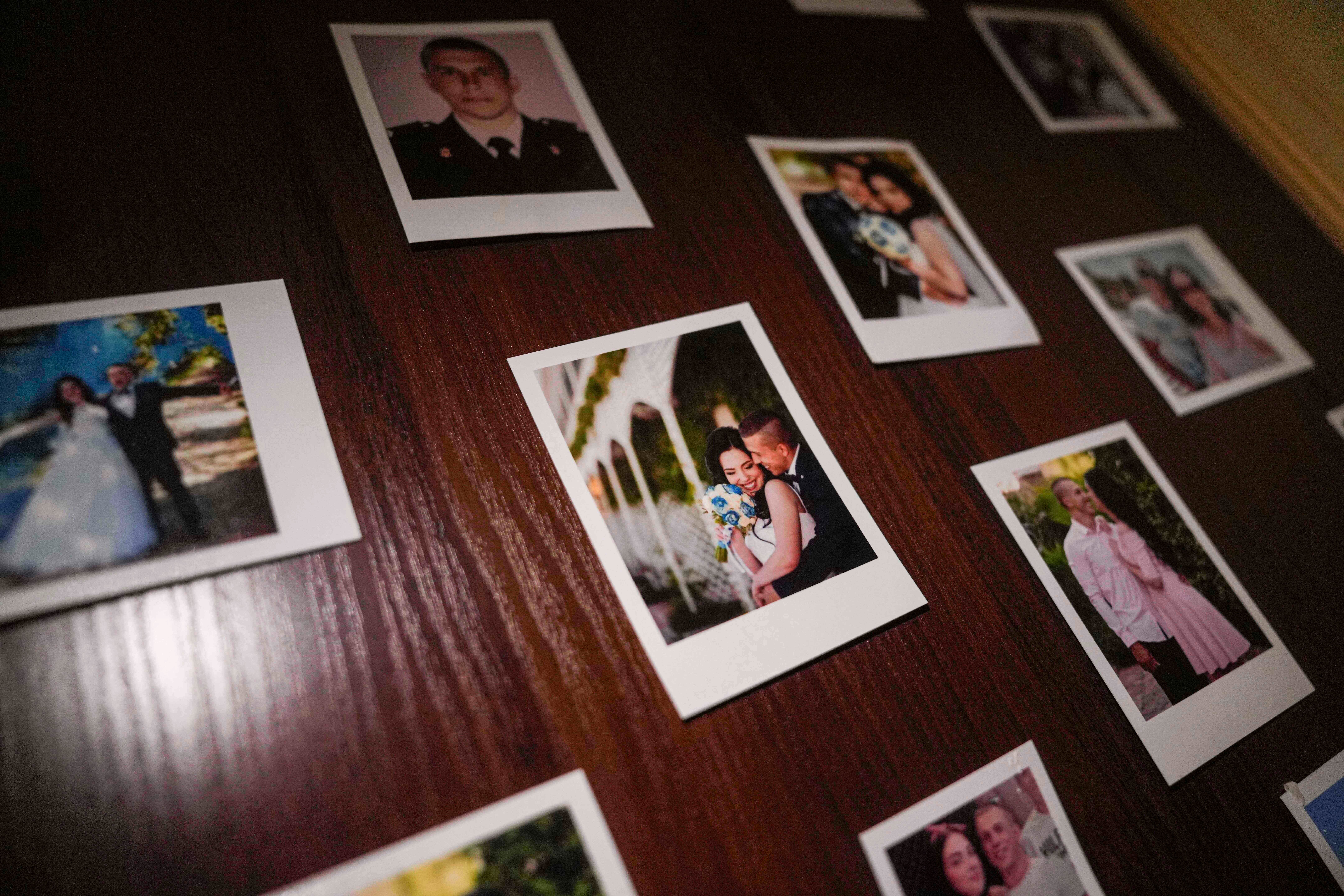
When they met, in 2015, he was 21 and she was just 15. “It wasn’t love at first sight,” she said with a wide smile, eyes sparkling.
Their attraction blossomed gradually that summer in Berdiansk, in what is now the Russian-occupied zone in the southern Zaporizhzhia region. Three years later, as soon as she turned 18, they wed.
When they first met, it was not long after Russia illegally seized Crimea, Ruslan's homeland, in 2014, and also invaded eastern Ukraine. Ruslan, a professional soldier, had already served on the front line.
From the beginning, Ms Kurtmalaieva understood that life as a military wife meant constant sacrifice — long separations, missed milestones, and the uncertainty of war. But she never imagined that one day she would be waiting for her husband to return from captivity.
When she describes Ruslan, tears well up in her eyes. “He’s kind, he has a heightened sense of justice,” she said.
“For him, it was a matter of principle to return home and bring our Crimea home,” she said, a loss she fully comprehended only after Russia's full-scale invasion of Ukraine in February 2022.
“Only when I lost my home did I fully understand him."
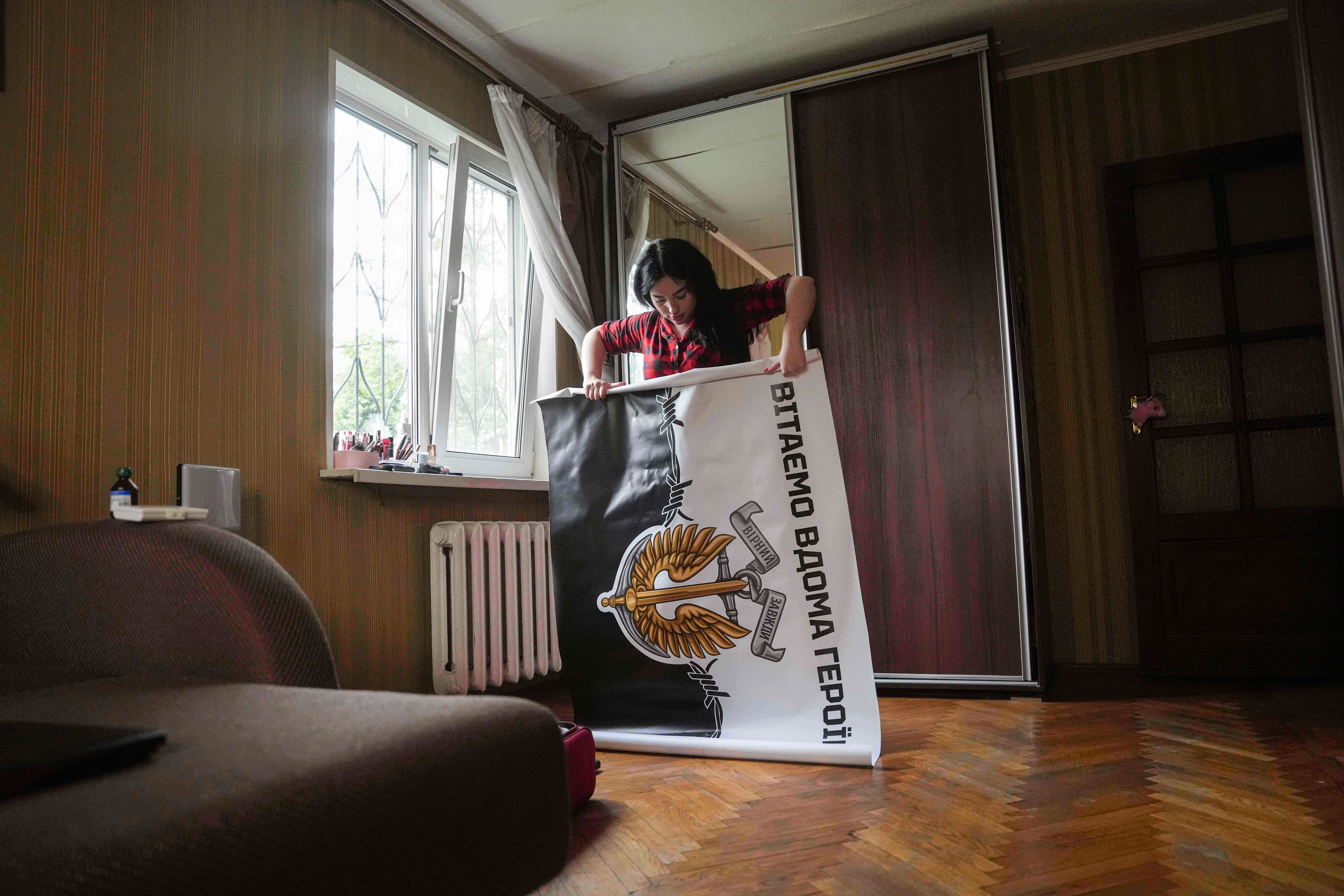
Facing cancer and hair loss
Ms Kurtmalaieva managed to complete only two sessions of chemo before the full-scale invasion. When her long hair began to fall out, she shaved her head. When she sent Ruslan a photo, he didn’t hesitate: “God, you’re so beautiful,” he told her.
Later, he made a confession.
“He told me, ‘Yeah, I saw your hair falling out in the mornings. I gathered it all from your pillow before you woke up — so you wouldn’t get upset.’”
At the time, she believed that losing her hair was the worst thing that could happen to her. But soon after, she discovered what real tragedy meant.
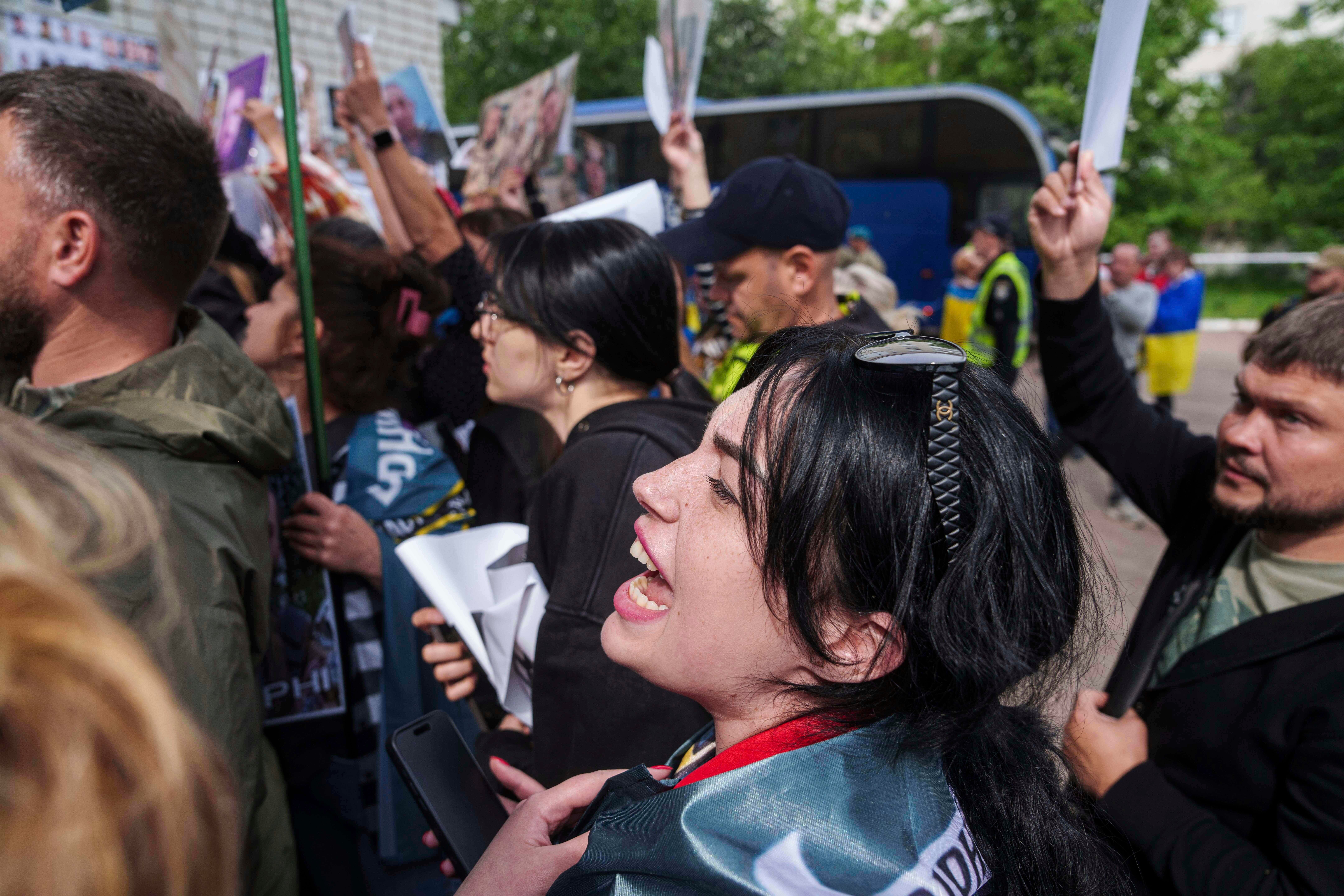
War and captivity
Ms Kurtmalaieva never made it to her third round of chemo.
She stayed in Berdiansk, which was seized by Russian forces in the early days of the war. Cut off from medical care and waiting for news of Ruslan, she quietly began helping the Ukrainian military from inside occupied territory.
“There was no oncology department in Berdiansk. There was simply nowhere to get treated,” she said. “But honestly, I didn’t even care that much at the time.”
In early April, she discovered that Russians had captured Ruslan and others from his marine forces’ unit.
“I started to cry, but then I stopped myself. I thought, ‘Wait. Is this something to cry about? He’s alive. That’s what matters.’”
At the time, she said, their idea of Russian captivity was naive. Only later did it become synonymous with torture, starvation and medical neglect.
Ms Kurtmalaieva left Berdiansk in June of 2022.
“Walking through your own city, but feeling like it’s someone else’s — that’s horrifying,” she said. “There were Russian flags everywhere. I kept Ukrainian music in my headphones. I was scared my Bluetooth might disconnect, and they’d kill me. But it was worth it.”

She spent several months moving between cities, helping to organise peaceful rallies to raise awareness about Ukrainian POWs. Eventually, she settled in Kyiv. Throughout that time, she paid little attention to her cancer diagnosis, even as her health steadily declined.
Then her condition worsened sharply. Her temperature spiked to 40C.
“When the doctor looked at my test results, she said, ‘How are you even walking?’” she recalled.
Her lymphoma, left untreated during occupation, had progressed to Stage 4. Emergency chemotherapy began — and it hit her hard.
“My second round of chemo was disastrous,” she said. She developed an intestinal blockage, couldn’t digest food, and was rushed to intensive care. “It was morphine all night from the pain. I couldn’t stand. I couldn’t sit. They moved me like a dead body.”
In the hospital, she overheard doctors say her condition was inoperable. Then a nurse came to her bedside and spoke plainly.
“‘We’re going to try to restart your system manually,’ she told me. ‘But if it doesn’t work, you may not wake up tomorrow. You must help us however you can.’”
It was the thought of Ruslan, still in captivity, that helped Ms Kurtmalaieva survive.
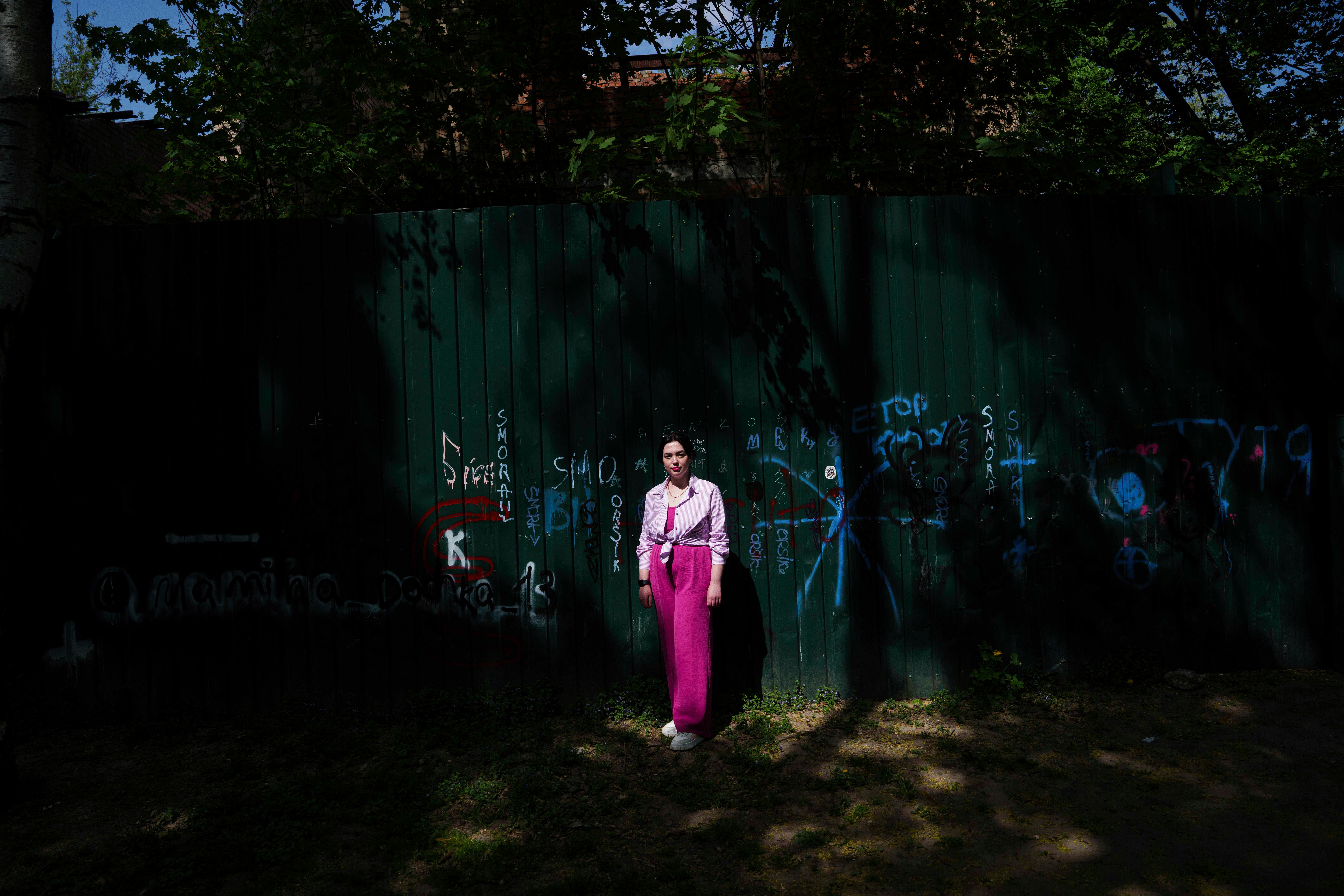
Unanswered letters
In April 2024, Ms Kurtmalaieva was told she was in remission. Now she juggles civic activism with running an online cosmetics store. She co-founded the Marine Corps Strength Association, representing over 1,000 Ukrainian POWs still in captivity.
In close contact with former prisoners, Ms Kurtmalaieva gathers fragments of information about Ruslan — she has had only one phone call with him in the past three years. She sent several letters but never received a reply.
Like an investigator, she pieces together every detail. That’s how she discovered that her husband had broken ribs and a crushed arm during regular beatings, according to the testimony of one of the POWs.
As part of the psychological torture, he is made to listen to the Russian national anthem repeatedly. A Crimean Tatar and a Muslim, he is given only Christian religious texts to read — not the worst form of pressure, Ms Kurtmalaieva acknowledges, but still a clear violation of his faith.
One day, a Russian guard struck him eight times on the head with a hammer.
“The other prisoners said they had never seen bruises like that in their lives,” she said.
Ruslan spent months in solitary confinement. And yet, somehow, he remains emotionally strong.
“He tells the others about me,” Ms Kurtmalaieva said, her voice softening. “One of the guys who came back said (Ruslan) told him: ‘She’s your age, but she’s got a business, she’s strong, she’s fighting for us. She’ll get us out.’”
That story stayed with her.
“I can’t afford to be weak. How can a marine’s wife be weak?” Ms Kurtmalaieva said. “What matters is that he knows I’ll keep fighting for him — until the very end."
Denmark’s army extends compulsory enlistment to women for the first time
Ukraine war live: Ukrainian F-16 pilot killed in Putin’s largest aerial attack
Russia launches largest airstrike on Ukraine since start of the war
Police detain over 50 people in crackdown on Istanbul Pride march
Turkey wildfires: Izmir airport forced to close with flights cancelled and diverted
Russia launches biggest air attack on Ukraine since start of war




